|
|
THE BIRCH SHRUBS
Tag Alder, Green Alder, and American
& Beaked Hazel
Betulaceae, The Birch Family
The birch family contains 6 genera and about 100 species that occur mostly throughout the cooler northern climates. Most are shrubs. In the U.P. there are several shrub-sized species. They all have simple leaves with saw-toothed margins. Three common shrubs are tag alder, American hazel, beaked hazel.
TAG
ALDER (Alnus rugosa)
Other Names: Speckled Alder
Key ID Features: Leaves, Habitat, Female Cones, Buds

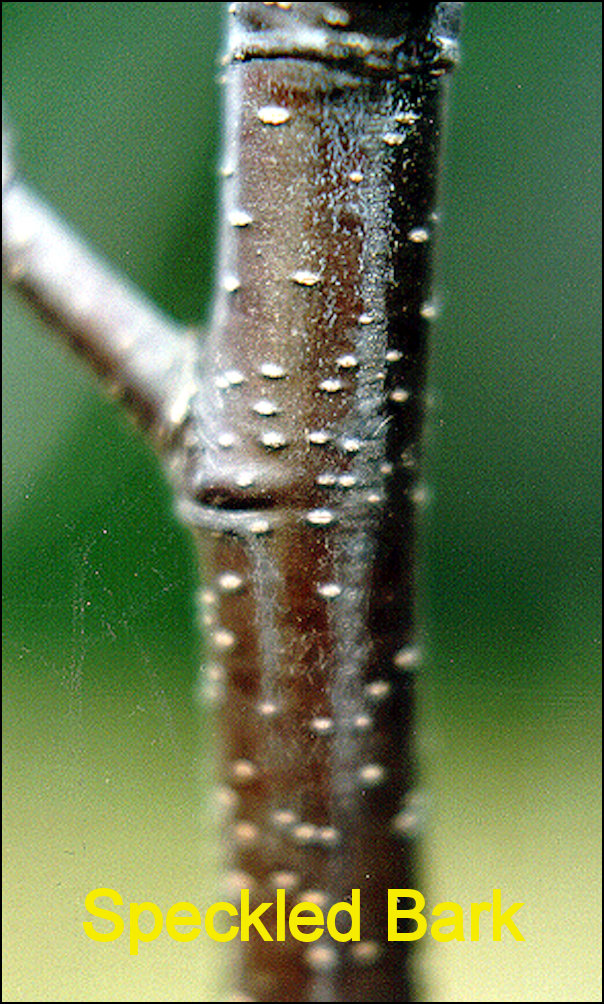
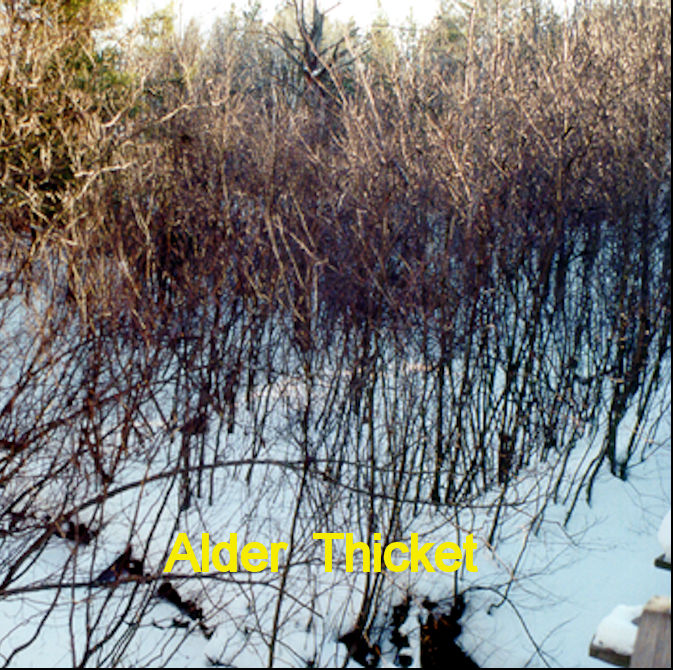
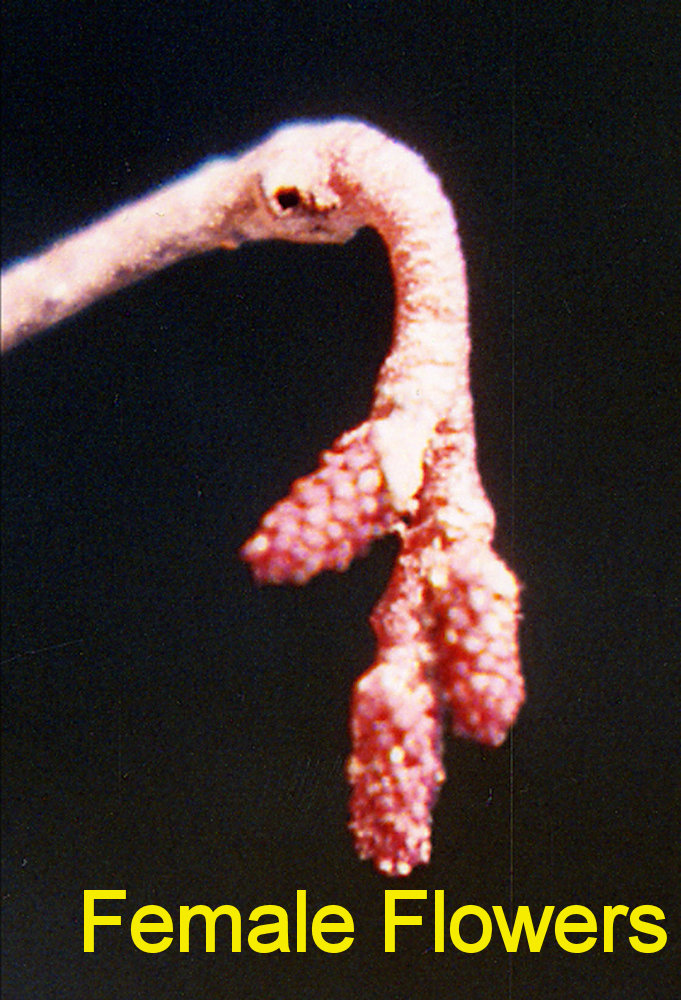

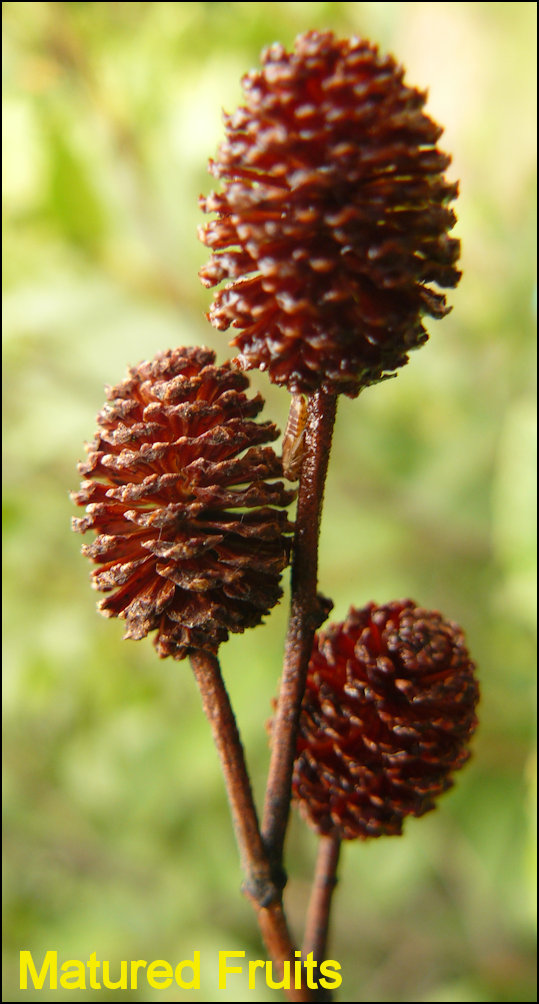
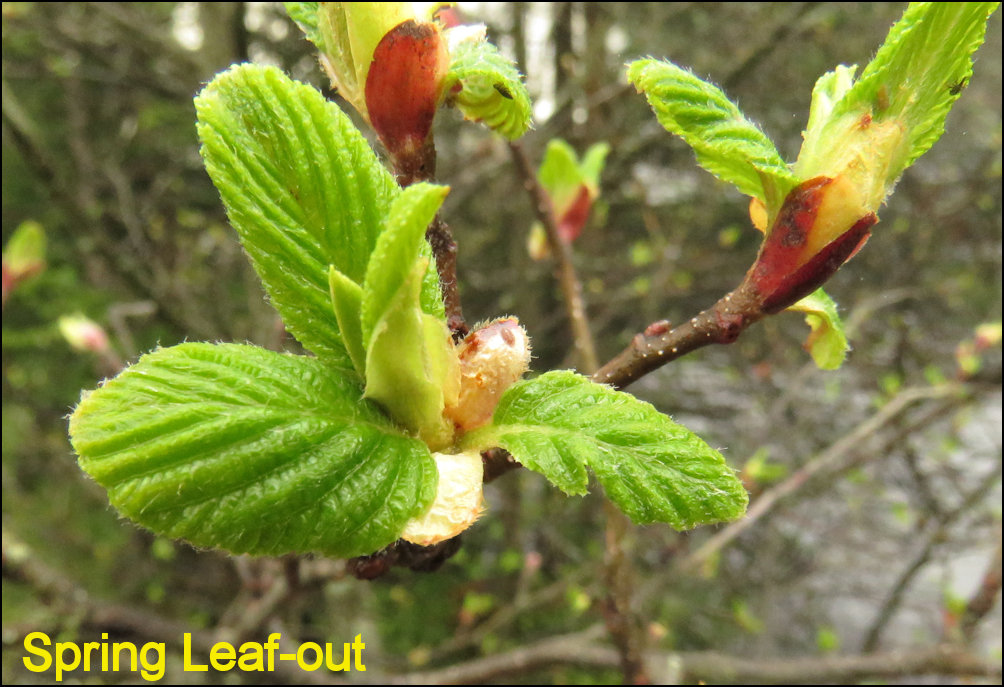
Tag alder is, arguably, the most common shrub
in the U.P. growing in richer swamp settings. The purplish STEMS with large, white,
warty speckles, or lenticles, are
familiar to most people. The 3-4 inch LEAVES are single-toothed with heart-shaped
leaf bases.
Terminal
BUDS are leaf-like and D-shaped. The MALE catkins
are about 1.5 inches long. The FEMALE CONES are woody and about a half-inch
long. The CONES often stay on the twigs throughout the winter. TWIGS are dark
brown to purplish and shiny.
GREEN ALDER
(Alnus crispa)
Other Names: Mountain Alder
Key ID Features: Leaves, Geographic Location, Female Cones
Green alder is similar to tag alder, but it much less common, occurring mostly near Lake Superior. The stems are less speckled than tag alder. Leaves, fruits, and flowers have subtle differences.
AMERICAN HAZEL
(Corylus americana)
BEAKED HAZEL (Corylus cornuta)
Key ID Features: Leaves, Fruits, Twigs
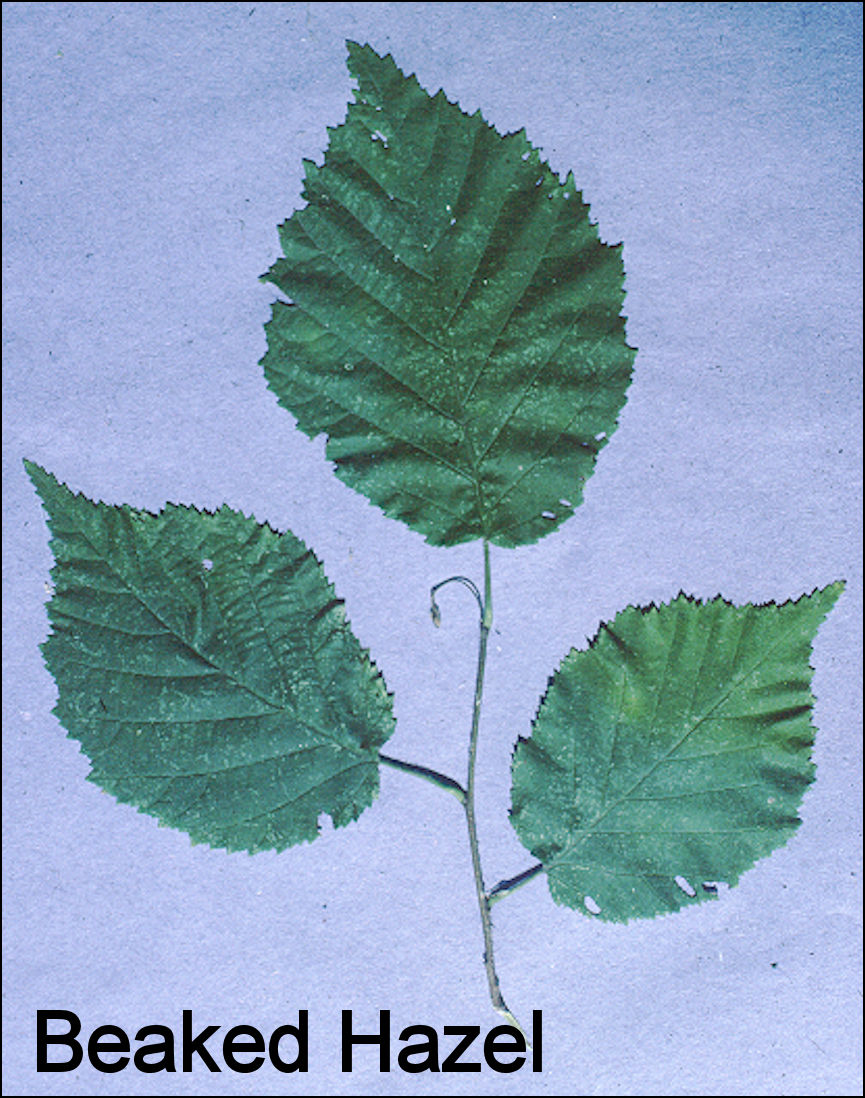

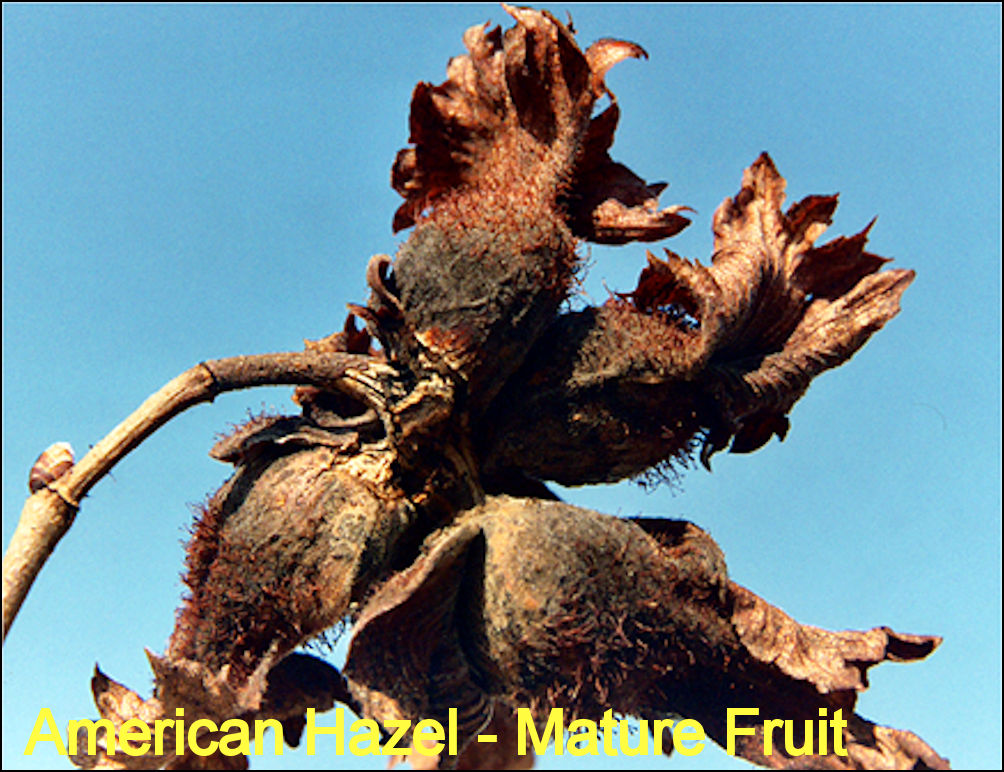
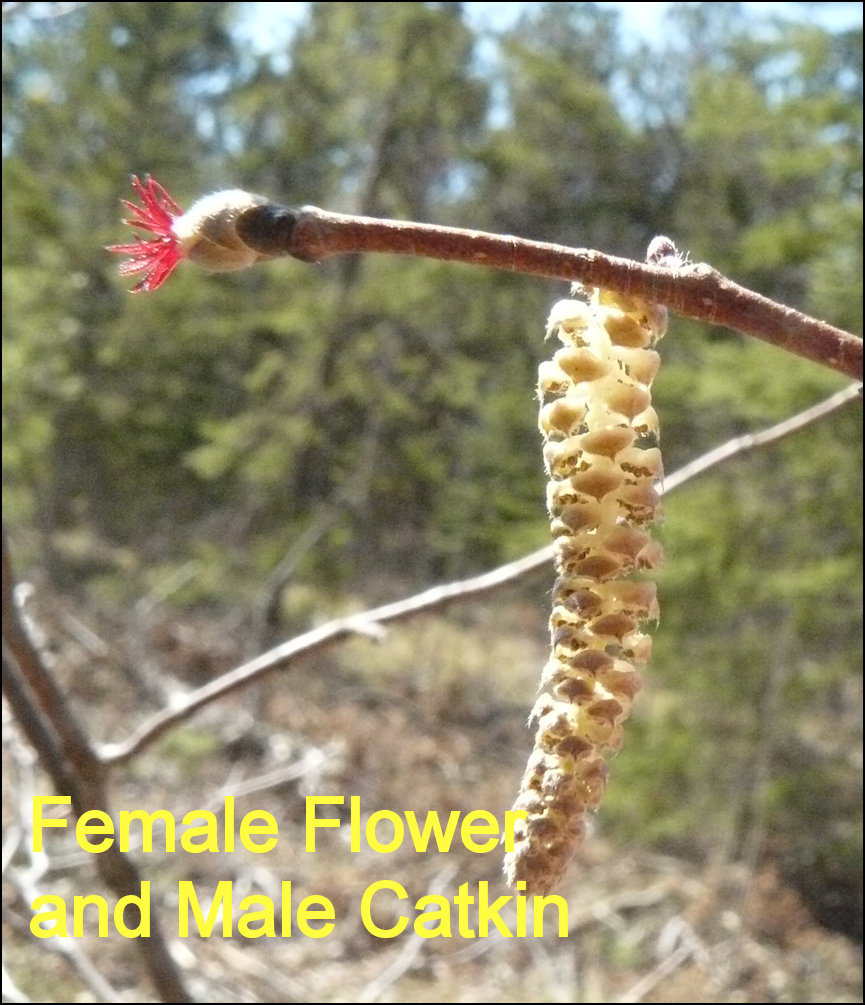
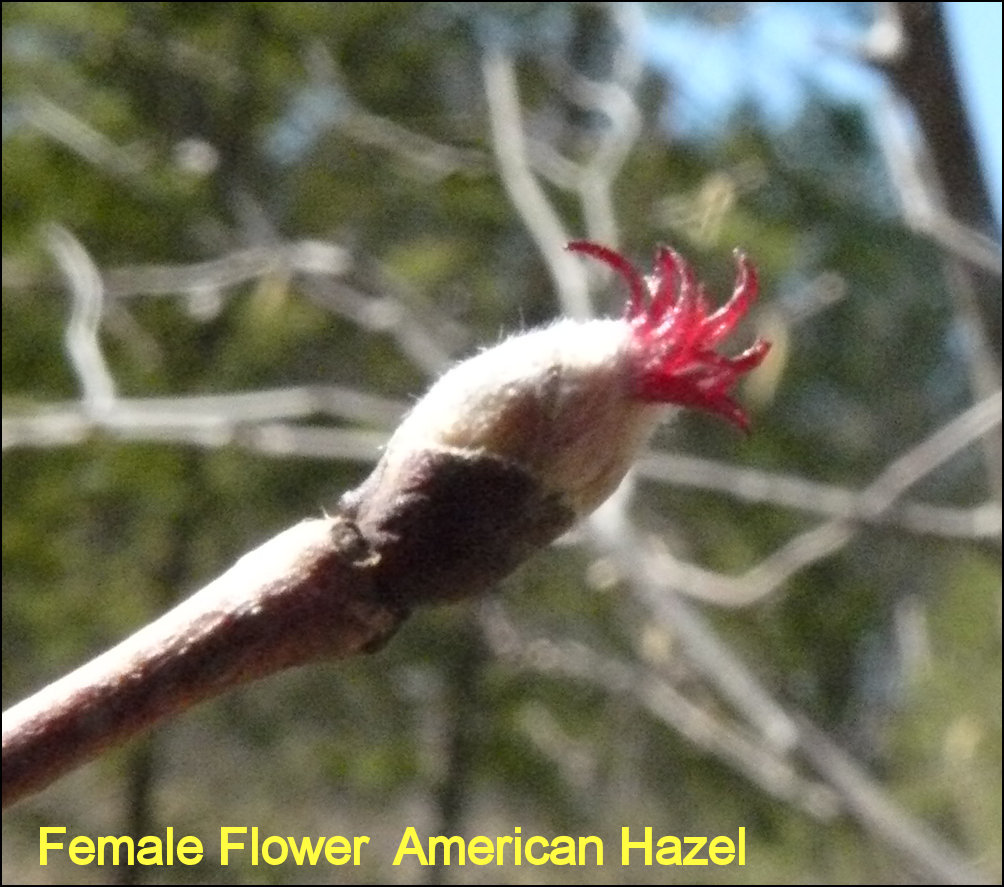
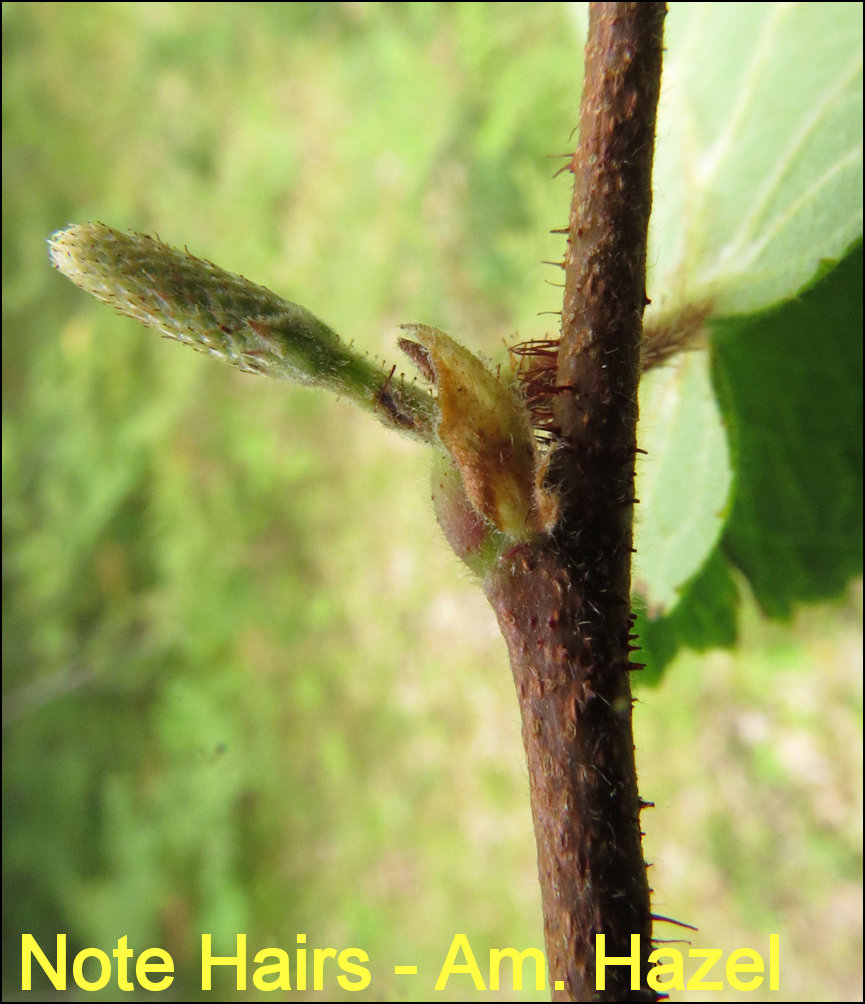
The two species are very
similar, distinguishable by close inspection of the TWIGS or when the FRUITS appear.
Hazel brush can grow to 15 feet tall, but usually is 4-6 feet in height. The
2-5 inch LEAVES are double-toothed
with somewhat heart-shaped leaf bases.
The STEMS and TWIGS are usually a light brown. TWIGS and leaf stems of
American hazel have stiff, short, fine hairs. Beaked hazel does not. NUTS, or
filberts, of American hazel are sheathed in fuzzy husks. The whole fruit is
roundish. Beaked hazel houses the NUTS in bristly husks with a tube-like
"beak" about 1.5-2 inches long. The bristles will irritate your skin.
Click on the blue to return
the Deciduous Summer Key or the Deciduous
Winter Key.
Click HERE to return to the home page.
A note about the images on this website, click here.
This site created and maintained by Bill Cook, MSU Extension Forester for the Upper Peninsula of Michigan. Editing and modification is ongoing. Submit suggestions, questions, and corrections to cookwi@msu.edu or call 906-786-1575.